On-line age verification is no longer just for alcohol and gambling. In 2025, lawmakers are expanding age-check requirements across digital industries, from social media and gaming platforms to e-commerce marketplaces and app stores. With multiple states enacting new rules, and more preparing to follow suit, businesses that fail to adapt risk fines, reputational damage, and regulatory backlash.
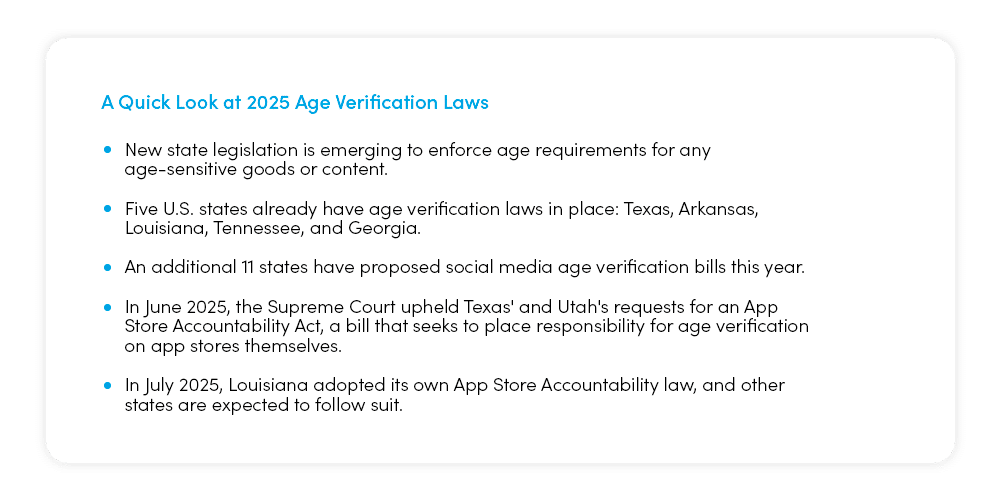
Why Are Age Verification Laws Suddenly So Popular?
Across the U.S. and Europe, age verification laws have garnered massive attention in recent years, and the driving factor behind this explosion in popularity boils down to one factor: human reliance on the internet. The worldwide web has evolved into an easy-access digital ecosystem for minors who can all too quickly stumble upon unsuitable content for their age, and we’re not just talking pornography or violent material.
Traditionally, self-attestation of age has functioned as the sole gatekeeper of age-restricted online content and products, but this method is wildly insufficient. It’s too simple to circumvent, it lacks proof, and does not fulfill a company’s due diligence responsibilities. Even worse, a lack of age verification laws has been proven to harm adolescents in extremely damaging ways:
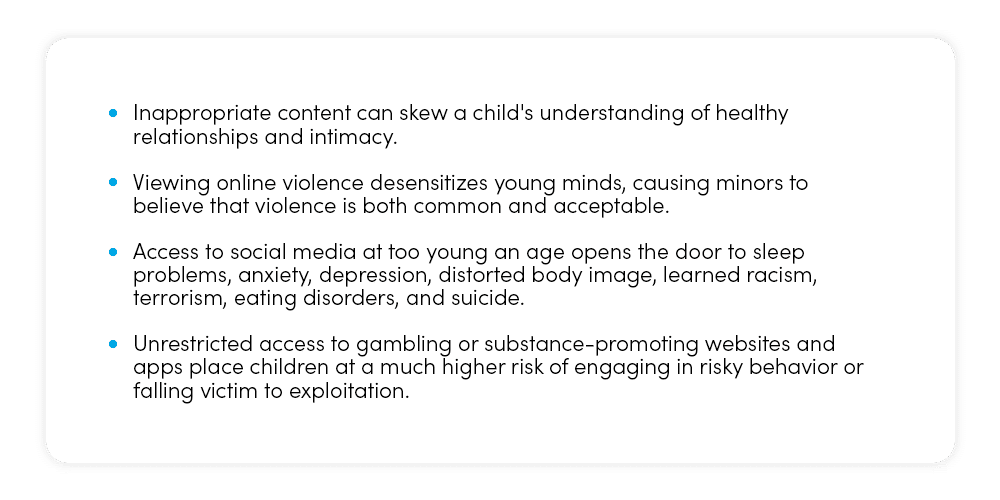
Challenges of Online Identity Verification: From VPNs to Spoofing
Spend time with any child or teen and they’ll likely be buried in a screen of some kind: They’ve got TVs, iPads, laptops, handheld-gaming devices, or mobile phones, and even the most on-guard parents can’t keep up with the barrage of adult content kids face on a daily basis. Factor in a child’s tech-savvy abilities and their propensity to seek out what they shouldn’t, and you’ve got an instant recipe for age-verification violations.
Parents and regulators alike are raising concerns about ineffective age restrictions in spaces like online gaming, e-commerce, and streaming platforms, and their concerns aren’t unfounded:
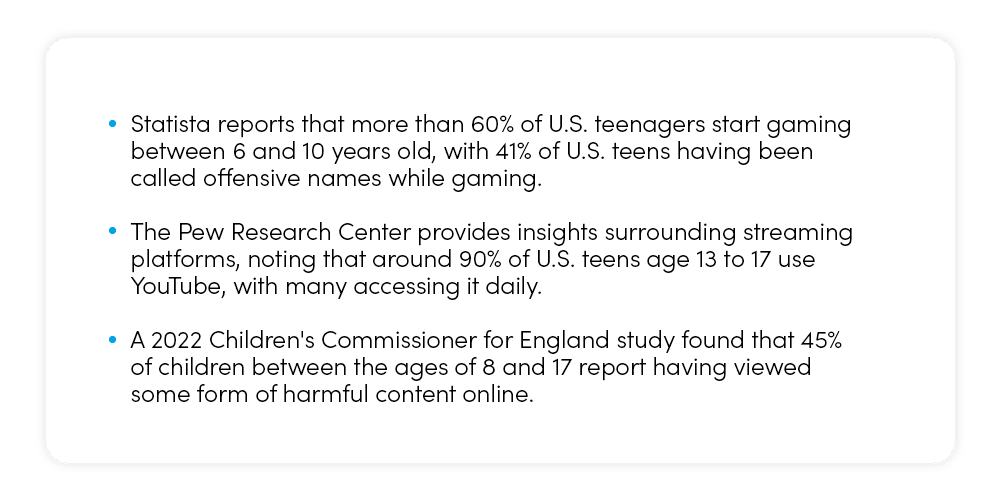
You might be asking yourself, if age verification is so necessary, why is no one monitoring these children? The answer is that most kids are supervised, at least to some extent, but most parents (and companies) aren’t aware that young minds are capable of executing adult-level workarounds like these:
IP Rotation & Proxies
Utilizing VPNs and proxy servers can mask locations and identities, making it much harder for platforms to detect a user’s age. Think kids and teens aren’t familiar with VPNs? They grew up with iPads in their cribs; dodging online identity verification with a proxy is literal child’s play.
Spoofing
While adult cybercriminals can spoof legitimate users by creating advanced artificial visuals, younger generations can just as easily create fake profiles with borrowed or AI-created photos to deceive biometric age-verification systems. After all, ChatGPT is free for everyone.
Do Age Verification Laws Compromise Free Speech & Data Privacy?
Opinions in the free speech and data privacy space are mixed and extremely heated. In addition to the valid concerns listed above regarding online child safety, adults have their own metaphorical axes to grind with the ways age verification technology could affect their freedom of speech and ability to maintain privacy online. For example, the Electronic Frontier Foundation posits that it’s impossible to make sure websites don’t retain the age-related data they collect, regardless of whether age verification laws “require” them to delete it. The Center for Democracy and Technology fears that new age verification laws could potentially upend access to First Amendment-protected speech for all internet users.
These organizations have every right to raise concerns about speech limitations and privacy breaches under the latest online identity verification regulations. In response, some legal experts have suggested less restrictive alternatives, such as parental controls or content filters, that protect minors without infringing on the speech and privacy rights of adults. However, as we’ve seen just this year, multiple U.S. states, as well as the The Supreme Court, are voting in favor of stricter age verification laws, so free speech and user privacy may be forced to take a backseat.
Age Verification Technology & Affirmative Defense
Without proper age verification technology in place, everything from gambling platforms and tobacco retailers to adult products and social media platforms are fair game for children – a demographic that’s far too young to comprehend the mental and emotional repercussions of information they might encounter.
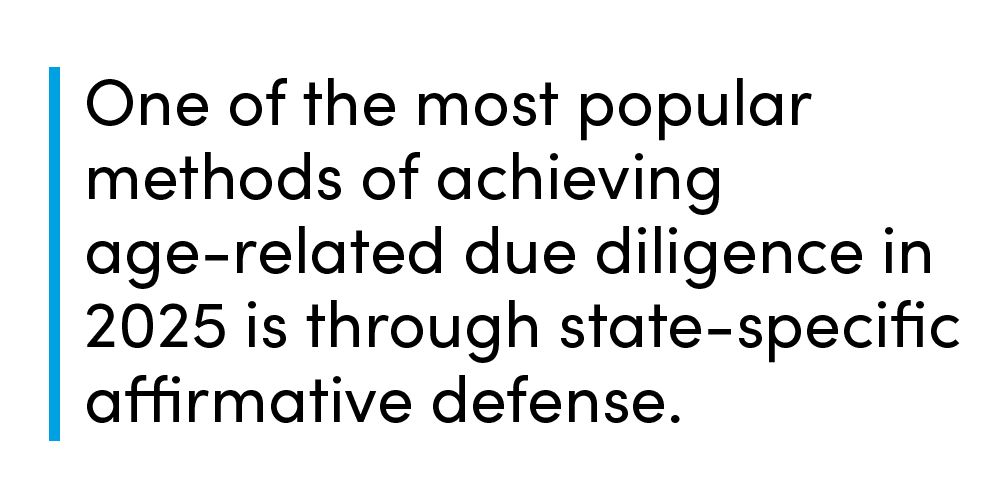
Though affirmative defense exists in a myriad of other industries and scenarios, it’s recently gained traction in virtual environments. Affirmative defense law, which has now been adopted by 11 U.S. states, releases businesses from legal liability for selling age-restricted products to a minor if they used appropriate ID scanning methods – such as an ID scanner with integrated age-veriification technology. This law would protect venues like concert halls, casinos, vape shops, and sports betting facilities from liability when checking age, provided they document their due diligence.
Bespoke EVS Solutions for Compliance-Minded Companies
EVS offers a host of customizable solutions to combat identity fraud and meet these affirmative defense standards. Our Assure suite of integrations is more in-demand than ever because it provides timestamped verification logs of user identities.
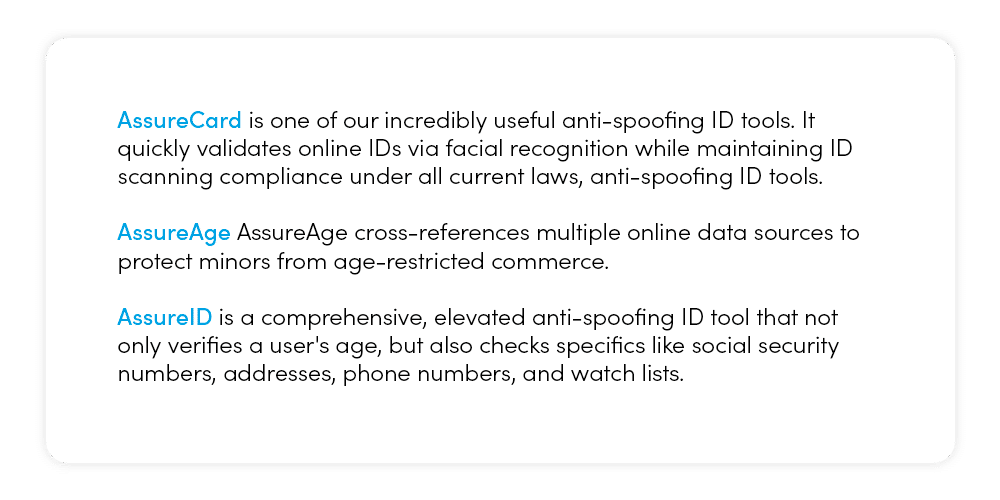
Curious how our suite of EVS products could work for your brand? Request a free demo to see just how our cloud-based platform can keep you compliant and streamline your customers’ experience, all within our BlueAssure online portal or API. When your business chooses to aggressively protect its customers and its bottom line with the most advanced age-verification technology on today’s market, you’re setting yourself up to reap reputational and monetary benefits.